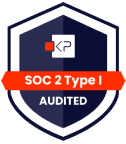The price of household heating like kerosene and heating oil remains so high it makes sense that credit unions in Maine are witnessing a rise in loan applications from members hoping to install appliances that will stave off the winter chill.
“Whatever ends up happening in 2023, credit unions are going into the year in a strong position to help regardless of the direction the economy may take,” according to Todd Mason, president and CEO of Maine Credit Union League, in a piece by Mainebiz. “However, we do see energy costs remaining high, and so many credit unions are offering fuel loans to help Mainers even out their expenses over the year, or install more efficient heating options.”
Mason also recognizes the present and future need for digital transformation in 2023 and coming years. “As we look into 2023 and beyond, the big expansion plans will be focused on providing more digital banking, lending and payment options.”
Consumers buckling down, “living sensibly” with financial goals in 2023
At some point in our lives, we endeavor to give fitness and gym memberships the focus they deserve at the beginning of the year in the form of New Year’s resolutions. It’s also a great time to help your members make the commitment to develop a solid, workable financial health plan, using the applicable and available credit union products and services that will get them where they need to be.
In light of present economic conditions and consumer challenges like rising inflation, such financial health plans could often use the stabilizing qualities a digital QCash Life Event Loan can offer to get members back on the solid path to financial wellness, especially when more than a third, or 35 percent, of American consumers took on new short-term debt this last holiday season to cover extraneous costs.
Due to inflation, consumers claim they had considerably less money in 2022, and they took a less confident view of their financial prospects in 2023. A lot of Americans require professional financial advice this year, according to a Fidelity 2023 New Years’ Resolutions Study. In a dramatic shift from last year’s results, more than a third of respondents claim they are in a worse financial position than a year ago (likely due to inflation), and 65 percent believe they will be better off a year from now (down from 72 percent in early 2022).
The positive news is that about 50 percent of those respondents say they are ready to “live sensibly” or “plan ahead,” which entails making practical, measurable, and constructive financial resolutions and remaining centered on leveling up on both short- and long-term financial planning strategies and goals.

Making the right move for addressing member debt in 2023
There are a number of methods your community has been told to solve their member debt – from paying off high-interest debt first, borrowing money from family, or using a balance transfer card. But somehow, many consumers choose to go the easiest – and one of the most unhealthy – routes.
A growing percentage of Americans are opting to pile expenses onto their credit cards to pay everything from basic expenses to “robust” holiday debt, further eroding their credit health and purchasing power. As we mentioned above, 35 percent of consumers used short-term debt to get through these last holidays. Know what they used? Their credit cards. That marks an increase from 32 percent in November and just 21 percent back in April of 2021, according to the Household Pulse Survey.
If consumers are insisting on carrying debt to counteract for heavier prices, they are taking the chance of paying more for items down the road. Fox Business plays out the example: Let’s say someone owes $5,000 in member debt. The current APR figure means it would take roughly 191 months and $6,546 in interest to pay off. And that’s making minimum payments.
For many low-income and underbanked members and consumers, even those circumstances sound rosy. With many credit scores in the 400s, they’re just wishing they had anywhere near the funds available in their accounts to pay down the debt on their credit cards. They clearly need financial help that takes a lot more than just surface-level, cosmetic solutions.
We said earlier there are several ways to address member debt, but the most financially healthy and balanced option continues to be the one product that started it all – the trusty, malleable, and adjustable small dollar loan. Premium and inclusive credit union-quality counseling that digs deep into the member’s economic challenges, paired with a financially healthy and stabilizing digital small dollar lending platform like QCash, provides the member a simple, easy, ultra-fast, and accessible option to acquire fast funds when an unexpected financial emergency arises.
For millions of households in America, financial recovery from the holidays is a difficult process, with 37 percent of shoppers taking five months or more to pay off the debt. In these times of record-high inflation rates and potential recessionary conditions in 2023, small dollar loans are that product, that core service, that has allowed untold millions the chance to fulfill their dreams and support the endeavors of their loved ones.
QCash wishes to give the opportunity of financial security and stability to your valued members. If you are a credit union considering adding a mobile small dollar lending solution for your community, we invite you to request a product demo on our website. We hope to partner with you!






